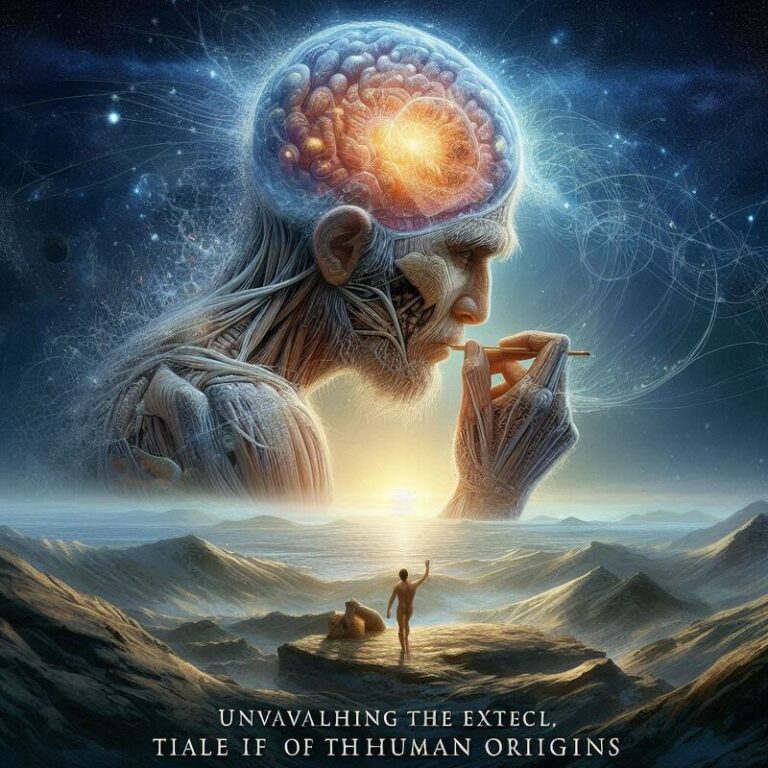Anthropogony Origins of Humans
Anthropogony Origins of Humans
Unraveling the Tapestry of Humanity: Exploring the Origins of Humans
In the vast chronicle of cosmic history, one of the most captivating chapters is the emergence of humanity. Anthropogony, the study of human origins, delves into the depths of our evolutionary journey, tracing the intricate threads of genetic, cultural, and environmental factors that have shaped our species. From the primordial landscapes of Africa to the far reaches of the modern world, the story of human origins is a testament to resilience, adaptability, and the boundless potential of Homo sapiens.
The Dawn of Humanity: The origins of Homo sapiens lie shrouded in the mists of time, with evidence pointing to the African continent as our ancestral homeland. Over millions of years, our early ancestors, such as Australopithecus and Homo habilis, roamed the savannas and forests, honing their survival skills and adapting to changing environments. It was within this crucible of evolution that Homo sapiens emerged, distinguished by our capacity for complex thought, social organization, and symbolic expression.
Anthropogony Origins of Humans
Genetic Insights: Advances in genetics have provided invaluable insights into the origins of humans, illuminating the deep connections that bind us to our ancient ancestors. Through the study of mitochondrial DNA and Y-chromosomal haplogroups, scientists have traced the matrilineal and patrilineal lineages of modern humans back to their African roots. Genetic analyses also reveal the intricate web of interbreeding and migration that characterized human evolution, with ancient DNA offering glimpses into the lives of long-extinct hominin species such as the Neanderthals and Denisovans.
The Out of Africa Hypothesis: Central to our understanding of human origins is the Out of Africa hypothesis, which posits that Homo sapiens originated in Africa before dispersing across the globe. Archaeological evidence supports this theory, with fossil finds and stone tools dating back hundreds of thousands of years attesting to early human presence on the African continent. Over time, successive waves of migration carried our ancestors into Eurasia, Oceania, and the Americas, where they adapted to diverse environments and climates.
Anthropogony Origins of Humans
Cultural Evolution: While genetic factors provide crucial insights into our evolutionary past, the story of human origins is incomplete without considering the role of culture. From the earliest stone tools crafted by Homo erectus to the intricate cave paintings of our Paleolithic ancestors, humans have long demonstrated a capacity for creativity, innovation, and symbolic expression. The development of language, art, and social norms fueled the expansion of human societies, enabling us to thrive in environments ranging from tropical rainforests to arctic tundra.
The Cognitive Revolution: At the heart of human evolution lies the cognitive revolution, a pivotal moment in our history marked by the emergence of complex thought and symbolic communication. Scholars such as Yuval Noah Harari argue that the ability to create shared narratives and imagined realities gave Homo sapiens a unique evolutionary advantage, facilitating cooperation, collective learning, and cultural transmission. This cognitive leap laid the foundation for the development of agriculture, urbanization, and the rise of complex civilizations.
Anthropogony Origins of Humans
Contemporary Perspectives: In the modern era, the study of human origins continues to captivate the imaginations of scientists, scholars, and the general public alike. Advances in fields such as paleoanthropology, archaeology, and genetics offer new avenues for exploration, challenging long-held assumptions and shedding light on previously obscured aspects of our evolutionary past. Moreover, the ongoing dialogue between science, religion, and indigenous knowledge systems enriches our understanding of what it means to be human in an ever-changing world.
Anthropogony Origins of Humans
Conclusion: The story of human origins is a testament to the resilience, adaptability, and ingenuity of our species. From humble beginnings in the African savannas to the far reaches of the modern world, Homo sapiens has traversed continents, weathered environmental challenges, and forged intricate social networks. As we unravel the tapestry of humanity’s origins, we gain a deeper appreciation for the interconnectedness of all life and the profound legacy of our evolutionary journey. In celebrating our shared heritage, we honor the diversity of human experience and the boundless potential that resides within each of us.



